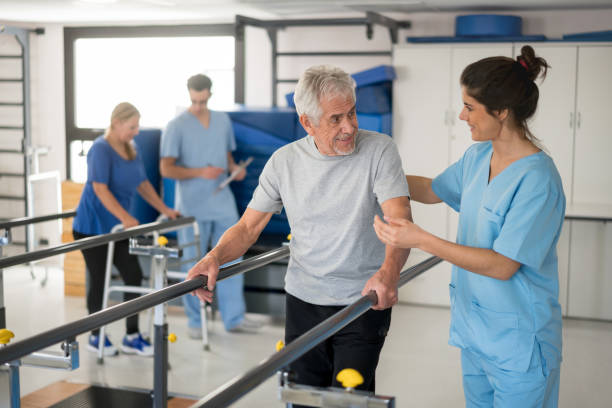Case Study - Group Exercise for Acquired Brain Injury (ABI) Residents

Introduction: Agility Rehabilitation were engaged to provide group exercise classes for residents with Acquired Brain Injury as part of a healthy living program at several residential care facilities. Focus of the program was to improve resident fitness and function to assist with daily living, improve health and mental wellbeing, improve engagement and motivation to exercise, and ultimately improve quality of life.
Initial Assessment: Prior to program commencement, every participant underwent a pre-exercise functional assessment. Due to the nature of brain injury, individuals presented with varied levels of mobility and physical function including those relying on electric wheelchairs, self-propelled wheelchairs, walkers, support sticks or independent mobility. Some with degrees of paralysis, tremor or contractures. Mental health conditions were common as well as cognitive dysfunction including anxiety/depression, poor problem solving and concentration, impaired short term memory and low motivation. High levels of comorbidities such as obesity, type II diabetes, dysphagia, chronic pain, asthma, joint pain or nonspecific
pain.
Treatment provided: The group exercise classes were run once weekly for 12-18 weeks onsite at three different homecare facilities. Group size was limited to 6 participants per 60-minute session. Sessions consisted of varied circuit based exercise programming with aspects of muscular strengthening, cardiovascular fitness, coordination, balance and problem solving. High focus on creating a supportive and fun environment to assist with motivation and engagement.
Outcome: General improvements in strength and cardiovascular fitness assisting activities of daily living such as independent transfers and mobility. Noted development of coordination, control and balance resulting in improved mobility confidence and reduced falls risk. Most notably an improvement in enjoyment and appreciation of exercise resulting in improved mood, confidence, motivation and hopefully developing long-term exercise habits in the participants.
“Due to the specific concerns that arise when working with people with ABI, we have found that the exercise physiologist skill set is well suited to working with this group in the community.”
(Health and Wellbeing Coordinator, Brightwater Care Group)